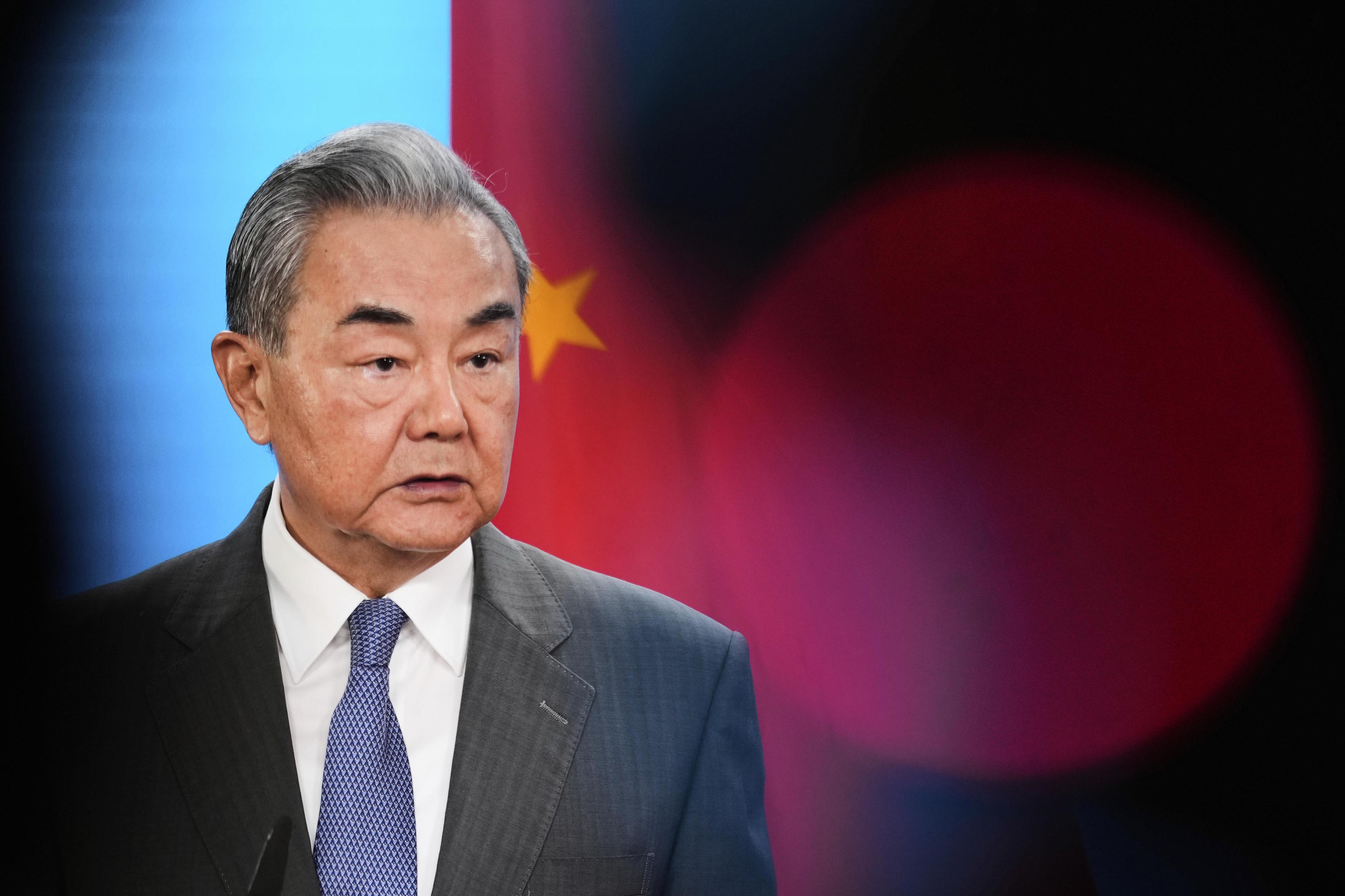The balance between neutrality in the war in Ukraine and the partnership with Putin had been the prevailing script embraced by Chinese diplomats. But this script may have cracked. An exclusive from the Hong Kong newspaper South China Morning Post (SCMP), one of the leading media outlets in Asia, states that Chinese Foreign Minister Wang Yi admitted on Wednesday to the EU's foreign policy chief, Kaja Kallas, that Beijing cannot afford for Russia to lose the war against Ukraine because it fears the United States will forget about Putin and go all out against the Asian giant.
Wang is currently on a tour of Europe this week, warming up for the summit to be held on July 24 in Beijing between China and the EU, who are celebrating the 50th anniversary of their diplomatic relations this month. It is noteworthy that Wang's statements contradict his own public statements, as this close confidant of President Xi Jinping has frequently argued that China is neutral in the war.
Beijing avoids responding through official channels to inquiries from this newspaper about the information published regarding the conversation between Wang and Kallas. In private, Chinese officials do not hide that, like Russia, the Asian giant also seeks to restructure the Western global order, primarily led by the United States, and undermine the security architecture imposed by NATO.
Since the large-scale Russian invasion of Ukraine began in 2022, Chinese leaders have made efforts to portray Beijing as a neutral actor in the conflict and a potential mediator for peace. From the Asian superpower, a peace proposal was presented that included respect for Ukraine's sovereignty and a call for a ceasefire, while also acknowledging Russia's legitimate security concerns regarding NATO expansion. Even some authoritative voices from the Chinese military have expressed readiness to send peacekeeping troops to Ukraine to help preserve any ceasefire negotiated between Moscow and Kiev.
The other reality is that, over the years, Xi Jinping's government has strengthened its relations with Vladimir Putin's regime, being a key economic support to mitigate the impact of sanctions. European leaders have repeatedly and unsuccessfully urged the Chinese leader to use his influence over Putin and pressure his partner to end the war. Washington frequently accuses Beijing of selling Moscow the dual-use technologies necessary to fuel the war machine.
For some time now, many international analysts have pointed out that by providing political and economic support to Russia, China is shielding Moscow from international isolation, stabilizing its budget by providing income, and helping Putin maintain social stability by supplying consumer goods. As a result, Russia can focus more on the war with Ukraine and produce the necessary weapons for the battlefield.
"From Beijing's perspective, the best outcome of the war in Ukraine seems to be a middle ground between peace and war. This ideal situation could be a hybrid peace, a form of frozen conflict with a ceasefire and effective occupation of part of Ukraine by Russia," says Justyna Szczudlik, a China analyst at the Polish Institute of International Affairs.
"China prefers a hybrid peace because Beijing does not want Russia to be a clear winner or loser. A victorious Russia will be politically stronger and, although militarily exhausted, will remain well-trained on the battlefield, a situation that could pose a challenge for China," she continues. "A defeated Russia is also not a good solution because, for Beijing, Moscow serves as a buffer against NATO, and its collapse could facilitate the Alliance's expansion into Asia."
The SCMP report notes that some EU officials who participated in meetings with Wang were surprised by the frankness of the Chinese minister's statements, who rejected the accusation that his country was militarily supporting Moscow, stating that if this were the case, the conflict would have ended long ago.
China and the EU have been approaching each other for months and trying to improve their relations amid the trade war led by US President Donald Trump. The framework of the meeting between Wang and Kallas was mainly to discuss the EU's requests to China to end restrictions on the export of sought-after rare earths and critical minerals, crucial materials for new technologies.
But Kallas also warned her Chinese counterpart about supporting Putin's war. "Kallas highlighted the serious threat posed to European security by Chinese companies' support for Russia's illegal war," a report from Brussels emphasizes. A few days ago, the European media Politico stated that Russia is accelerating its drone production thanks to the help of Chinese manufacturers, who supply the key equipment for manufacturing through shell companies that change names and do everything possible to evade export controls and sanctions.
This week, Minister Wang also met with the President of the European Council, António Costa, and with the President of the European Commission, Ursula von der Leyen. In addition, on Thursday, he traveled to Berlin for an initial meeting with Germany's new Foreign Minister, Johann Wadephul, and on Friday, he is in Paris to meet with Jean-Noël Barrot, his French counterpart.
